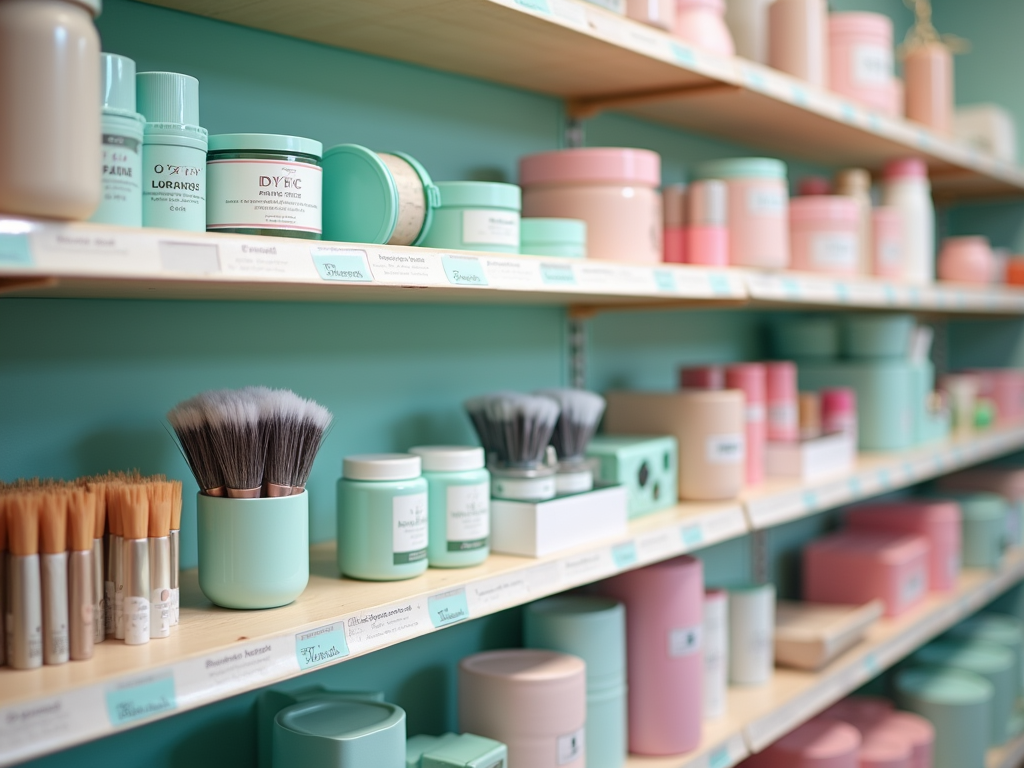Opening a specialty DIY store in Dubai can be a lucrative business opportunity, given the growing interest in home improvement and DIY projects within the region. This article outlines the essential steps to successfully establish your DIY store, from market research to licensing, store setup, and marketing strategies. These steps will provide a comprehensive guide to navigate the challenges of the retail landscape in Dubai and capture the enthusiasm of DIY enthusiasts.
Conduct Market Research

The first step in opening a specialty DIY store in Dubai is conducting thorough market research. Understand the local consumer preferences, trends, and the competitive landscape. The following points are crucial in your research:
- Identify Target Demographics: Learn about the age, income, and cultural backgrounds of potential customers.
- Analyze Competitors: Visit existing DIY stores, assess their product offerings and pricing strategies.
- Study Trends: Follow regional DIY trends, popular materials, and tools among local consumers.
- Survey Potential Customers: Conduct online surveys or focus groups to gauge interest in specific products or services.
- Assess Online Presence: Evaluate the market for online DIY shopping, which has grown due to digital transformations.
Create a Business Plan

Once you’ve gathered sufficient data from your market research, the next step is developing a solid business plan. This plan serves as your roadmap, detailing your store’s vision, mission, and strategies. A well-constructed business plan typically includes:
- Executive Summary: A brief overview of your DIY store concept and goals.
- Market Analysis: Insights from your earlier research.
- Marketing Strategies: Tactics for attracting customers, such as social media campaigns and community events.
- Financial Projections: Expected revenue, expenses, and break-even analysis.
- Operational Plan: Details on store operations, staffing, and supply chain management.
Understand the Legal Requirements
Before establishing your store, familiarize yourself with the legal requirements for opening a retail business in Dubai. Compliance with local regulations is crucial for smooth operations. Key legal aspects to consider include:
- Business License: Apply for a retail trade license through the Department of Economic Development (DED).
- Local Sponsorship: If you’re a foreign national, find a local sponsor who holds a majority share in your business.
- Commercial Lease: Secure a retail space with a valid lease agreement that complies with local zoning laws.
- Health and Safety Standards: Adhere to safety regulations established by local authorities.
- Taxation: Understand VAT regulations and any other applicable taxes.
Design Your Store Layout
The store layout plays a significant role in attracting customers and encouraging sales. A well-designed space will enhance the shopping experience, making it easier for customers to navigate through your product offerings. Consider the following elements when designing your store:
- Product Placement: Organize products logically, displaying tools, materials, and DIY kits prominently.
- Interactive Spaces: Create areas for workshops where customers can learn DIY techniques hands-on.
- Storage Solutions: Utilize space efficiently to store inventory and avoid clutter.
- Lighting: Implement effective lighting to highlight key products and create an inviting ambiance.
- Branding: Design your store’s interior to reflect your brand identity, ensuring signage is clear and engaging.
Once your store is set up, it’s time to launch marketing campaigns to attract customers. Utilize various marketing channels to maximize your reach. Here are some effective strategies:
- Social Media Marketing: Engage customers through platforms like Instagram and Facebook by showcasing DIY projects.
- Email Marketing: Send newsletters with DIY tips and promotions to keep customers informed and engaged.
- Local Events: Participate in community events or host workshops to gain visibility and promote your store.
- In-Store Promotions: Offer discounts or bundle deals to encourage in-store purchases.
- Influencer Collaborations: Partner with local influencers who can help promote your store through their networks.
Conclusion
Opening a specialty DIY store in Dubai involves careful planning and execution. By conducting thorough market research, strategizing your business plan, adhering to legal requirements, designing an appealing store layout, and implementing effective marketing strategies, you can establish a successful retail operation. With the right approach, your DIY store will not only attract hobbyists and professionals but also contribute positively to the vibrant DIY community in Dubai.
Frequently Asked Questions
1. What are the necessary licenses to open a DIY store in Dubai?
You need to obtain a trade license from the Department of Economic Development (DED) and comply with other local regulations.
2. How can I determine the right location for my store?
Choose a location with high foot traffic, easy accessibility, and proximity to your target demographic. Conduct a competitor analysis to gauge the potential market.
3. What products should I stock in my DIY store?
Focus on essential tools, materials for common projects, and DIY kits tailored to local interests—construction supplies, craft materials, and home improvement tools.
4. How can I effectively market my DIY store?
Utilize a mix of social media, email marketing, local events, and in-store promotions to create awareness and attract customers.
5. Are workshops beneficial for my DIY store?
Yes, hosting workshops can engage customers, showcase your products, and create a community around your store, thus driving more foot traffic and sales.


